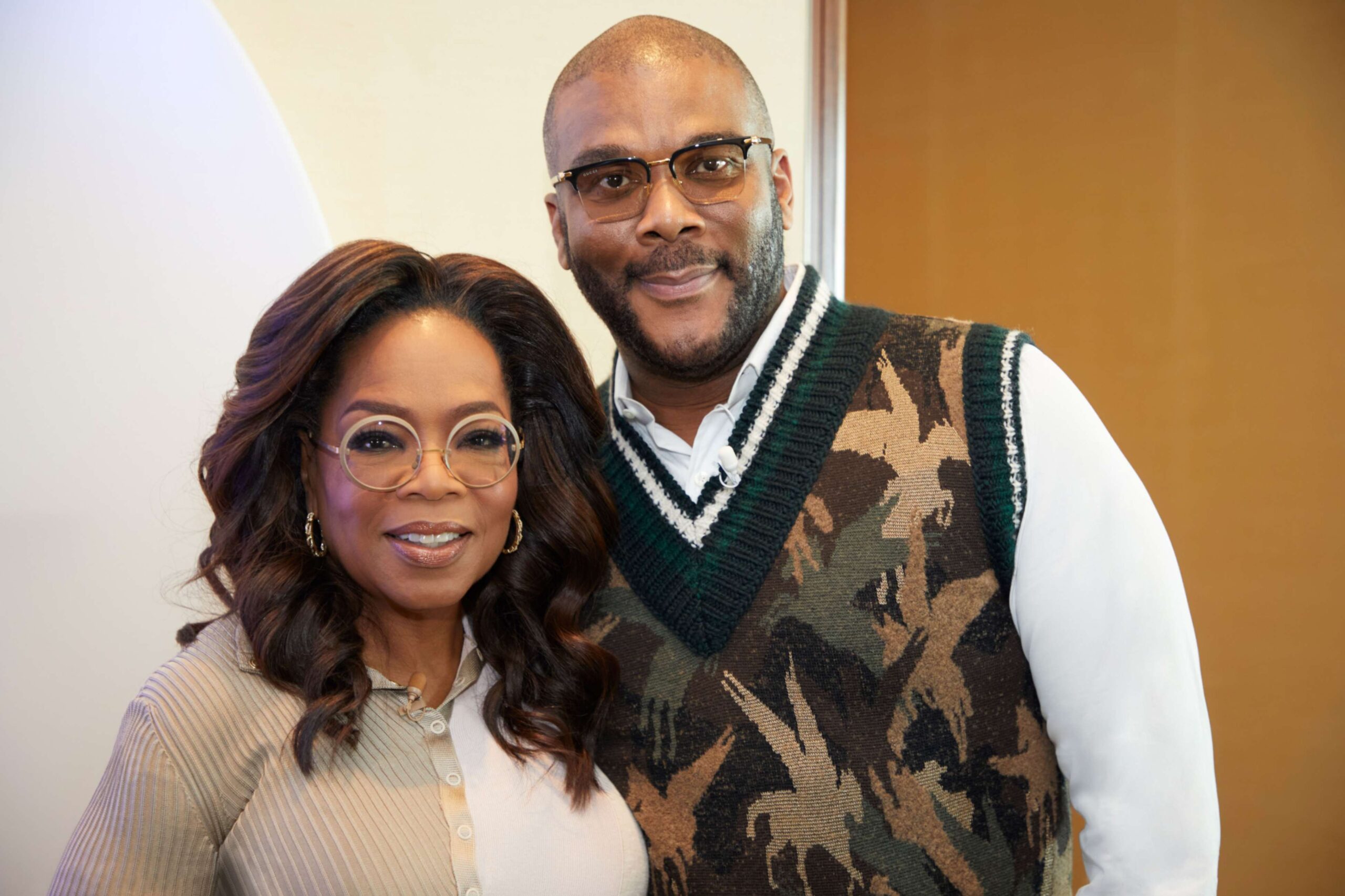In the entertainment industry, power dynamics and the alleged mistreatment of Black entertainers have been a source of controversy for years. Figures such as Oprah Winfrey and Tyler Perry, once hailed as trailblazers, are now facing mounting accusations of exploiting their influence to the detriment of others. Comedian Katt Williams has been particularly vocal in this regard, accusing both Oprah and Perry of orchestrating sinister agendas that target Black actors, leading to public outcry for accountability.

Katt Williams’ Mission to Expose Industry Corruption
Katt Williams has made it his mission to expose the malpractices in the entertainment industry, particularly those perpetrated by what he calls “gatekeepers.” His recent focus has been on Oprah Winfrey and Tyler Perry, both of whom he accuses of deliberately hindering the progress of Black actors. According to Williams, these powerful figures have orchestrated actions that sabotage the careers of certain individuals within Hollywood, particularly Mo’Nique.
Williams’ statements echo the sentiments of several other celebrities who have also called out Oprah and Perry. Stars such as 50 Cent, Ludacris, Dave Chappelle, and Mo’Nique herself have expressed frustrations with the duo, accusing them of using their influence to embarrass, blackball, and lowball Black actors rather than uplifting them. Despite the growing criticism, Oprah and Perry have remained unapologetic, which has fueled further outrage among critics like Williams.
Mo’Nique’s Battle Against Oprah and Perry
The conflict between Mo’Nique, Oprah, and Tyler Perry began during the production of the critically acclaimed film Precious, in which Mo’Nique played a pivotal role. Despite the film’s success, Mo’Nique was reportedly compensated with a mere $50,000. The situation worsened when Oprah and Perry allegedly demanded that Mo’Nique participate in promotional press tours without offering additional pay. Mo’Nique’s refusal to engage without fair compensation led to a backlash, with the duo allegedly working to tarnish her professional reputation.
According to Mo’Nique, Oprah and Perry initiated a campaign to label her as “difficult” and “uncooperative,” a narrative that spread through various media outlets. This portrayal created professional roadblocks for Mo’Nique, resulting in directors and producers avoiding her for fear of similar conflicts.
The tension escalated when Oprah aired an interview featuring Mo’Nique’s abusive brother, which also included her parents—whom she had been estranged from. Mo’Nique claimed she had only approved an interview with her brother and felt betrayed when Oprah went ahead with the full family interview without her consent. This incident damaged Mo’Nique’s relationship with Oprah, leading her to publicly confront Oprah at an event years later.

50 Cent, Ludacris, and Dave Chappelle’s Grievances
Katt Williams isn’t the only one questioning the actions of Oprah and Perry. 50 Cent, for instance, has openly criticized Oprah for refusing to feature him on her show, stating that she disapproved of his music and persona. The rapper took this rejection personally, going so far as to name his dog “Oprah” in retaliation.
Ludacris had a similarly negative experience with Oprah. When promoting the movie Crash, Oprah focused her questions on his use of explicit language in music, rather than his acting. Ludacris felt that Oprah was not only dismissive of his work in the film but also edited out his responses to make him appear less articulate on air.
Dave Chappelle’s complaints are even more alarming. After his dramatic departure from Chappelle’s Show and a brief hiatus in South Africa, Chappelle appeared on Oprah’s show, where he shed light on the darker side of the entertainment industry. Chappelle spoke of how industry elites tried to discredit him, even attempting to medicate him in an effort to control his actions. Chappelle’s experience, along with his refusal to comply with Hollywood’s demands, mirrors a sentiment of resistance shared by Katt Williams.
Tyler Perry’s Role in Feminizing Black Men?
An ongoing theme in Katt Williams’ critiques is the assertion that Tyler Perry has been instrumental in promoting the feminization of Black men in Hollywood. This claim is supported by comments from comedian Dave Chappelle, who recounted an experience in which he was pressured to wear a dress during the filming of a movie—a common trope that Williams argues is part of a broader agenda.
Kevin Hart also weighed in on this issue, initially stating that he had his own boundaries when it came to wearing dresses for comedic purposes. However, Hart later contradicted his stance by wearing a dress in an SNL skit, which drew criticism from Williams and others who saw it as another example of the industry’s push to emasculate Black men.

Sexual Misconduct Allegations Against Tyler Perry
Adding fuel to the fire, actor Christian Keyes recently accused a powerful Hollywood figure—whom many speculate to be Tyler Perry—of sexual harassment. Keyes claimed that he had been propositioned with money and coerced into compromising situations, suggesting that other Black actors may have been similarly exploited.
While Keyes stopped short of naming Perry directly, the timing of his allegations and his past collaborations with Perry led many to suspect that the filmmaker could be one of the individuals involved. Keyes indicated that he had been carrying recordings of the misconduct for nearly two decades and suggested that these revelations would soon come to light.
The Hollywood Gatekeepers
As these allegations continue to surface, the term “gatekeeper” has taken on a more sinister meaning in Hollywood, referring to individuals who, like Oprah and Perry, hold immense power to make or break careers. Figures like Katt Williams, Mo’Nique, and Dave Chappelle have positioned themselves as whistleblowers, challenging the elites who they believe exploit and suppress Black talent.
In the end, the controversies surrounding Oprah and Perry highlight the complex and often toxic power structures in the entertainment industry, where influence can be wielded to both elevate and destroy. Whether these accusations will result in tangible consequences remains to be seen, but they have certainly ignited a broader conversation about accountability, exploitation, and the responsibility of those in power.